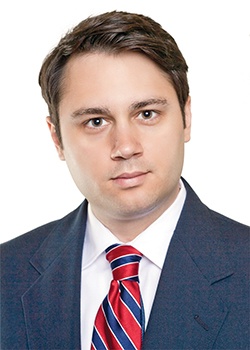A Checkup on Dental Care (Opinion)
by December 24, 2012 12:02 am 91 views

Arkansas creating its own dental college is like NASA sending a manned mission to Mars. They’re both admirable yet expensive goals; they should both be scheduled for the not-near but not-too-distant future; and they should both be preceded by the completion of more immediate, more realistic milestones.
That’s not to dismiss efforts by the University of Arkansas for Medical Sciences to give the state its own dental school as either a pie-in-the-sky dream or potential boondoggle. Nor would a likely timeline extend to mid-century. More like five to eight years. At least that’s UAMS Chancellor Dan Rahn’s goal.
There was talk that funding for a dental school might be broached in the coming legislative session, but Rahn said his university has more immediate priorities. In the meantime, UAMS continues to lay groundwork for a dental school.
It will begin serving patients at its new Dental Education Center’s oral health clinic in January. Next up is clinical training for dental students’ fourth and final year. And in 2014, the school plans to offer a general practice residency for dental school grads. From there, it’s on to the preclinical education that would make it the only school in Arkansas to churn out dentists.
UAMS’ efforts have been spurred by a citizenry that literally is hurting for better dental care. Only 59 percent of Arkansans 18 and older had their teeth cleaned last year, and only 61 percent visited the dentist — the fourth-worst and fifth-worst rates in the country, respectively — according to a recent report by the Kaiser Family Foundation.
No surprise, underserved rural areas suffer disproportionately compared with the rest of the state.
The creation of a dental school will no more send dentists flocking to the Delta, for example, than the presence of a state medical school brings an ample supply of doctors there. Offering loan repayment programs to attract young dentists to underserved areas could help, especially when you consider that students leave dental school averaging more than $200,000 in debt. That’s more than the $160,000-plus average for U.S. medical school grads.
Prospective Arkansas dentists are at an even greater disadvantage because they must pay out-of-state tuition rates. Even with the state subsidizing out-of-state tuition — it spent nearly $2 million on dental training for 120 Arkansas students in the 2011-12 fiscal year — and an arrangement among some nearby colleges to not charge the full out-of-state tuition rate, Arkansans can still pay in excess of $15,000 more per year in tuition than their in-state counterparts.
Fully funding the difference between in-state and out-of-state tuition rates would still likely be cheaper than the state paying for its own dental school. It’s probably not a permanent solution, as other states have every reason to put the burden of tuition hikes on out-of-state students rather than their own, which could make tuition subsidization costs spiral out of control. But it’s a viable stopgap between now and the creation of an Arkansas dental school.
Besides making dental school a more attractive option for Arkansans, we could also make Arkansas a more attractive option for new dentists.
To be licensed to practice dentistry in Arkansas, you must first successfully complete clinical exams offered by the Southern Regional Testing Authority, one of more than a half-dozen such testing entities in the country.
And while Texas, Missouri and Tennessee accept exams from some or all of the other testing outfits, as do most states, Arkansas accepts only the one. So dental school grads from Louisiana, Mississippi or Oklahoma are less likely to practice in Arkansas because they’d have to take the dental equivalent of medical board exams more than once.
The Arkansas State Dental Association said the State Dental Board of Examiners is currently considering the issue. The ASDA should be an advocate.
Finally, the ASDA should also back off its opposition to midlevel oral health care providers, who could be the nurse practitioners of dentistry, offering basic services like teeth extractions and fillings. Dentists cite safety as a concern.
But with Arkansas’ current oral health epidemic, it would seem they could do much less harm than good.
Chip Taulbee is the associate publisher of Arkansas Business, and can be reached at [email protected].
